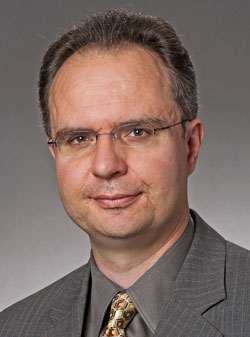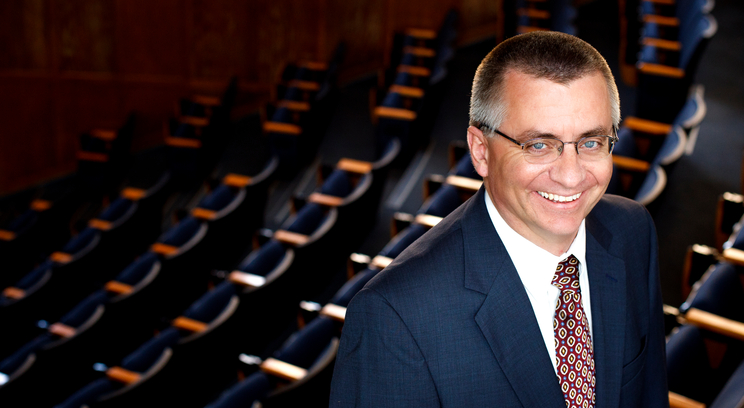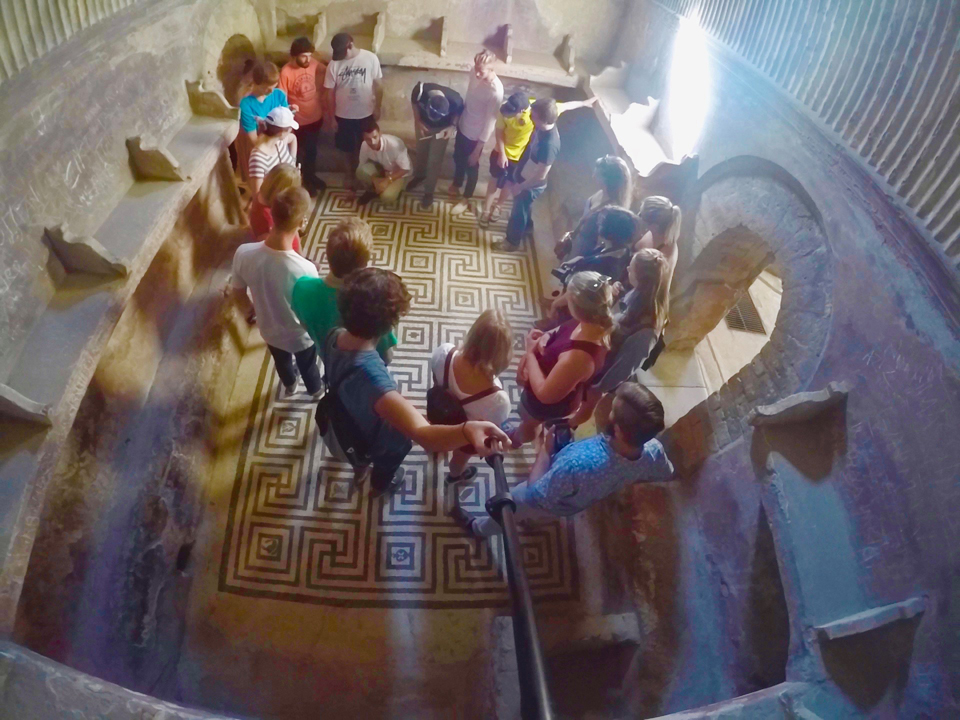
Dr. Paul Gavrilyuk
Is there a depth to our perception? Are our senses capable of apprehending aspects of reality beyond mere physical colors, sounds and smells? Is it possible, for example, to perceive moral and aesthetic qualities, such as goodness and beauty? Such beliefs as "this person is a trustworthy business partner" or "this piece of art is in good taste" are judgments, based on experience and deliberation. Could such beliefs also be based on a form of perception that goes beyond scanning physical properties and involves apprehending moral and aesthetic properties? To speak of perceiving trustworthiness and beauty is to expand the range of ordinary sense-perception.
If it makes sense to speak of perceiving moral and aesthetic properties, could a form of perception also provide an access to the reality of God? In order to express an encounter with God, religious authors of all ages have used sensory language. For example, in the Old Testament believers are invited to "taste and see that the Lord is good" (Psalms 34:9), and the prophets "hear the word of the Lord" (Isaiah 1:10; Hosea 4:1). In the New Testament, the apostle Paul speaks of receiving the vision of God "face to face" (1 Corinthians 13:12), beholding "the glory of the Lord as in a mirror" (2 Corinthians 2:18) and inhaling the "sweet aroma of Christ" (2 Corinthians 2:15). The witnesses of Christ’s ministry speak of "touching with [their] own hands" the Word of Life (1 John 1:1). Finally, the Beatitude promises that the "pure in heart will see God" (Matthew 5:8).
These biblical passages point to certain features of human condition that make perceptionlike contact with God possible. But how precisely should these statements be interpreted? What implications do such statements have for our understanding of human nature? Do such statements imply a special way of perceiving divine things?
While there is a broad agreement that humans possess the five physical senses, there is no comparable consensus regarding other modes of perception. The claim to have a special form of perception allowing for a direct contact with God was received skeptically in modernity. Enlightenment philosophers generally ignored pre-modern accounts of religious experience. In addition to secular pressures, there are good religious reasons for doubting human ability to perceive God. According to 2 Corinthians 4:18, when attempting to look at God, one is "looking at what cannot be seen." In his capacity as the creator, God surpasses all ordinary objects of perception; thus, to apply sensory language to the experience of divine things appears to be a category mistake.
The Research Project
To explore the phenomenon of spiritual perception, I led a collaborative research project, which included theologians, historians and philosophers, and began when I was guest teaching at Harvard Divinity School in spring 2007. The initial group met at the invitation of Professor Sarah Coakley, who was then teaching at Harvard. Our group approached the issue of spiritual perception historically, mining the insights of Christian authors across the centuries, including the figures as diverse as Origen, Augustine, Bonaventure, Aquinas, Jonathan Edwards and Hans Urs von Balthasar. We discovered a largely forgotten Christian tradition of the spiritual senses, spanning from the biblical authors to present-day theologians.
To bring this rich tradition to the attention of the scholarly community, we decided to publish a collaborative volume. The work on the book, which Coakley and I co-edited, took four years and involved symposia in Boston, Chicago and Montreal. The results were published by Cambridge University Press in 2012 under the title The Spiritual Senses: Perceiving God in Western Christianity. Dr. Mark McInroy of UST’s Theology Department contributed two chapters and was actively involved in the production of the book as well.
Three Models of Spiritual Perception
As our book discusses, Christian authors use sensory language in three distinct ways. The first model draws on the Platonic concept of intellectual intuition. Plato used such expressions as "the eyes of the soul" or the "sight of the mind" to describe a direct, perceptionlike apprehension of intelligible realities, such as the true, the good and the beautiful. Christian theologians have baptized Platonic intellectual intuition by applying it to the biblical texts that describe an encounter with God as a kind of seeing. Thomas Aquinas summed up this tradition when he wrote: "the highest and perfect happiness of intellectual nature consists in the vision of God." (Summa contra Gentiles, III. i. 60. 2) The apex of the union with God, to be fully achieved in heaven, was articulated as a doctrine of beatific vision.
The second and third models are based on an analogy of the five physical senses. The second model postulates that the spiritual senses are tied to the spiritual aspect of consciousness and operate independently from the physical senses. This model may offer an explanation of the data of near-death experiences. The persons who underwent such experiences often report perceiving things, while the parts of their brain responsible for ordinary perception and imagination were not functioning. Assuming that some of the reported experiences were real, the mode of perception responsible for such experiences was analogous to, yet independent from, the five physical senses and the body.
According to the third model, the spiritual senses are the physical senses aided and transformed by grace. It is God who enables the physical senses to perceive what they previously could not perceive. Damaged by sin, the spiritual senses operate imperfectly in this life. In heaven, the senses will become a properly functioning part of what St. Paul called "the spiritual body" (1 Corinthians 15:44), that is, a body animated by the Holy Spirit. On this model, the spiritual senses are not a separate set of powers, but represent a transfigured, Spirit-filled state of the physical senses.
According to Aristotle, the physical senses can be ranked, with the sense of touch being the lowest (as being involved in sensuality and materiality) and vision being the highest (as contributing most to our knowledge of the world). Some Christian authors draw on the Aristotelian hierarchy in their accounts of the relative importance of each of the spiritual senses. Other Christian authors, especially mystics, overturn the Aristotelian hierarchy and use tactile metaphors drawn from the Song of Songs – kisses, embraces and so on – to describe the most intimate form of union with God.
The three models illuminate the functioning of spiritual perception in different ways. These models are based on a shared assumption that spiritual perception is damaged, but not altogether destroyed by sin. The spiritual senses could be purified by various practices, such as prayer, reading of scripture and fasting. The transformation and healing of the senses goes hand in hand with the transformation of the will and the acquisition of virtues. When combined with these insights, the models of spiritual perception illuminate the words of the beatitude, according to which "the pure in heart will see God."
Future Research
While the historical groundwork on spiritual perception has been completed, the topic requires further philosophical and scientific research. In the years ahead, I plan to develop an account of spiritual perception that could stand up to the challenge of philosophical reductionism by arguing that consciousness has an irreducibly spiritual dimension. This research promises to advance our understanding of human nature, shedding light on human capacity to apprehend the beauty and goodness of God. An account of spiritual perception also holds potential to provide an anthropology, which could integrate different domains of knowledge, combining empirical sciences with art, ethics, philosophy and theology.
Read more from CAS Spotlight.




